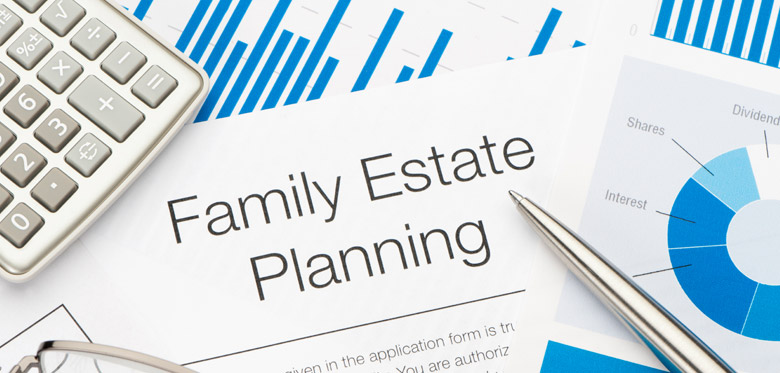Probate involves getting the court’s permission to carry out the wishes within someone's Will and settling the person’s estate. Probate is sometimes not required if the estate is small and in these two main scenarios:
- There was jointly owned land, property, shares or money - these will automatically pass to the surviving owners
- The deceased only had a small amount of savings or premium bonds
However, each source of asset (bank, mortgage provider etc). may have their own rules and in some instances probate may still be required.
Probate can be a complex process and the executors whether professional or the persons named in the Will, tend to follow these main stages. Many people appoint solicitors to act as executors as the process can be upsetting, time consuming and confusing. Stephensons has years of experience in acting as the executor of estates.
The stages of probate
Stage one - Making contact with the asset holders
This can take a long time and it involves identifying and making contact with banks, building societies, life assurance companies, utilities, pension providers and others in order to advise them of the death and to request a valuation of the assets held with their organisation. Insurance companies should also be correctly notified to ensure assets stay protected. The valuations are needed for income tax and inheritance tax purposes. Once all the valuations are know the inheritance tax form will need preparing.
Stage two - Apply for the grant of probate/letters of administration
It is then necessary to apply for the grant to administer the estate. If the person left a Will, you apply for a grant of probate. However, if the person did not leave a Will, you apply for letters of administration. When applying for the grant of probate or letters of administration the HMRC inheritance tax form and also the statement of truth for the executors or administrators if there is no Will, needs to accompany the application.
There are two types of inheritance tax forms - IHT205, the current inheritance tax threshold stands at £325,000, and if the estate is not subject to inheritance tax, it will be necessary to complete form IHT205. The other form is IHT400 and this should be used where estates are over £325,000. Before the Probate Registry (court) will issue the grant of probate or grant of letters of administration, any inheritance tax due must be paid. At the very latest, it must be paid six months after the end of the month in which the deceased person died. The HMRC issue a stamped summary of the tax calculated and paid which is required to apply for the grant of probate or letters of administration.
The executor or administrator if there is no Will, will need to confirm to the court that all information they have given in their statement is true to the best of their knowledge. Once the stamped receipt is returned from the HMRC for payment of inheritance tax the application can then be made for the grant of probate or letter of administration.
Stage 3 - Notifying the asset holders, apply for funds and placing statutory advertisements
So that assets can be released a copy of the grant of probate or letter of administration needs to be sent to the banks, mortgage provider, building societies etc, so that funds can be released. They will then be released to a the solicitor acting as a professional executor or in the administration on behalf of the named executor or administrator or directly to the executors in an executor’s account.
It is also good practice to place a statutory advertisement in the Gazette notifying creditors or beneficiaries so they have the chance to come forward. This gives any person wishing to make a claim 2 months in which to make such a claim from the date of the advertisement being published.
Liabilities and debts must be paid first, these could include:
- Funeral and estate administration fees
- Tax owed
- Utility bills, care accounts, credit card debts etc
- Benefit overpayments made after death or incorrectly claimed during the lifetime of the deceased
Only once these have been paid can the estate be distributed.
Stage 4 - Distributing the estate
Once taxes and debts have been paid the estate can be distributed to beneficiaries.
Stage 5 - Prepare the estate accounts
The final accounts should include documents showing how money and other assets were distributed from the estate. All beneficiaries should then receive a copy of the accounts. It is vital that records of this are well maintained including evidence such as the payment of inheritance and income tax as they can be requested for up to 20 years by the HMRC.
If you would to speak to a member of our team in relation to the probate process or any other related service, including making a Will or Lasting Power of Attorney please call us on 0161 696 6229 or complete our online enquiry form and a member of the team will contact you to discuss your requirements.



Comments